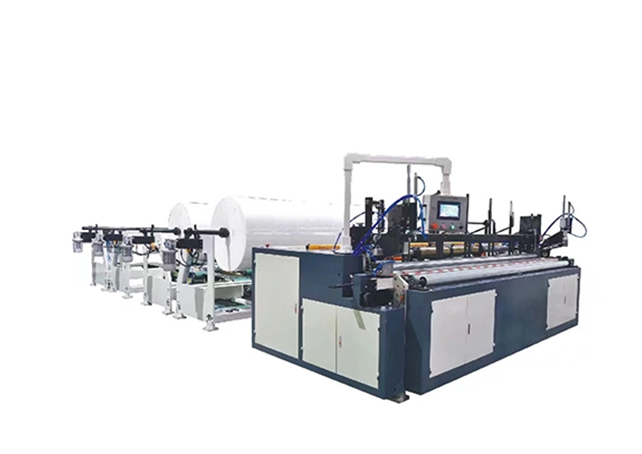In the ever-evolving landscape of industrial manufacturing, the focus on sustainability has become paramount. Amidst various sectors pushing for greener practices, the paper industry, particularly in the realm of toilet paper production, has seen considerable advancements. Today, we explore how modern rewinding machines, specifically those developed by Onepaper, are leading the charge in promoting environmental sustainability and operational efficiency.
Toilet paper rewinding machines are at the heart of toilet paper production. These machines are designed to take large rolls of paper and rewind them into smaller, consumer-ready rolls. The efficiency and technology of the rewinding machine toilet paper companies use directly impact their production rate, energy consumption, and waste generation. As demands for greener production methods rise, companies like Onepaper have innovated to meet these needs.
At the forefront of Onepaper's advancements is their unmatched efficiency in production. By leveraging state-of-the-art technology, their toilet paper rewinding machine transforms the rewinding process. This enhanced efficiency not only boosts production speeds but does so with a significant reduction in energy usage. Reduced energy consumption directly correlates to lower carbon emissions, marking a crucial step towards more sustainable manufacturing processes.
One of the standout features of modern rewinding machines is their precision. The tissue paper rewinder machines crafted by Onepaper are designed to reduce paper waste substantially. By ensuring that each roll is rewound to exact specifications, these machines minimize the occurrence of errors that often lead to waste. This precision not only conserves resources but also reduces the environmental impact associated with waste disposal.
The environmental benefits of modern rewinding machines extend beyond production and waste reduction. By optimizing the use of raw materials, Onepaper's machines play a significant role in conserving natural resources. Less waste and higher efficiency mean that less raw material is required in the first place, which helps in preserving forests and reducing the water used in the paper manufacturing process. This sustainable approach reflects a harmonious balance between industrial demands and environmental stewardship.
Ultimately, the adoption of modern rewinding machines like those from Onepaper contributes significantly to the creation of a greener economy. By setting new standards for sustainability and efficiency in the paper industry, Onepaper encourages other manufacturers to follow suit. This ripple effect can lead to widespread environmental benefits, including reductions in energy consumption, waste generation, and natural resource depletion.
The advancements in toilet paper rewinding machines symbolize a broader movement towards sustainable industrial practices. As technology continues to evolve, the potential for further reducing the environmental impact of paper production is significant. Through continuous innovation and a commitment to sustainability, companies like Onepaper are not just transforming how toilet paper is produced; they're paving the way for a more sustainable future in manufacturing.
In conclusion, the environmental benefits of modern rewinding machines represent a critical step forward in the paper industry. By prioritizing efficiency and sustainability, Onepaper's technology offers a blueprint for how modern manufacturing can reduce its ecological footprint while still meeting consumer needs. As we move forward, the integration of such sustainable technologies will be key in fostering a healthier planet for generations to come.
